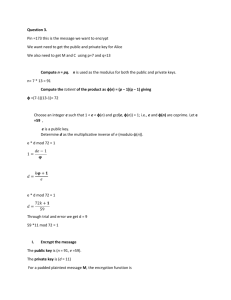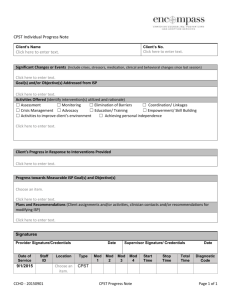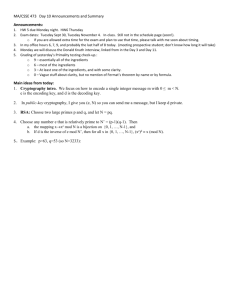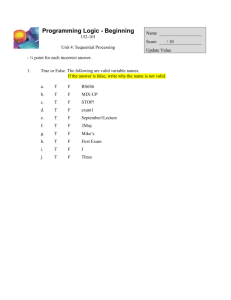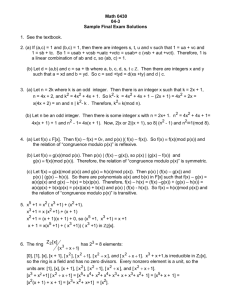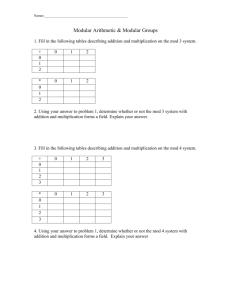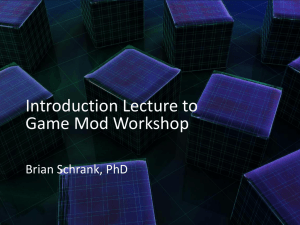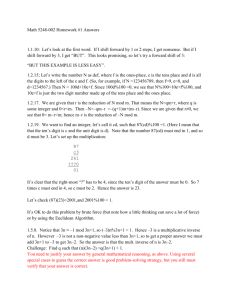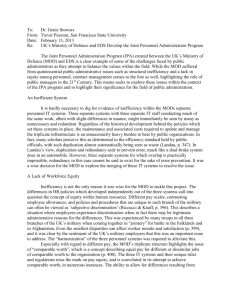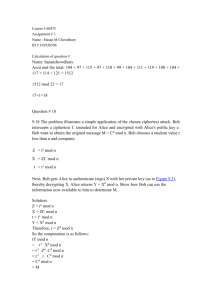Solution to Problem 3
advertisement
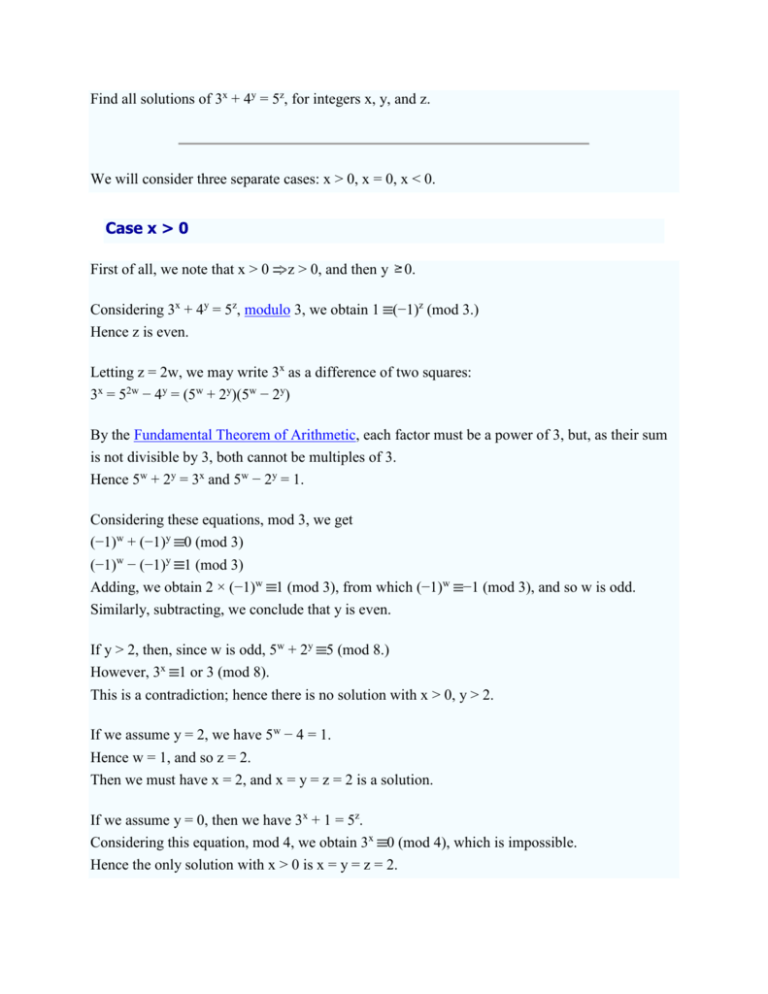
Find all solutions of 3x + 4y = 5z, for integers x, y, and z. We will consider three separate cases: x > 0, x = 0, x < 0. Case x > 0 First of all, we note that x > 0 z > 0, and then y 0. Considering 3x + 4y = 5z, modulo 3, we obtain 1 (−1)z (mod 3.) Hence z is even. Letting z = 2w, we may write 3x as a difference of two squares: 3x = 52w − 4y = (5w + 2y)(5w − 2y) By the Fundamental Theorem of Arithmetic, each factor must be a power of 3, but, as their sum is not divisible by 3, both cannot be multiples of 3. Hence 5w + 2y = 3x and 5w − 2y = 1. Considering these equations, mod 3, we get (−1)w + (−1)y 0 (mod 3) (−1)w − (−1)y 1 (mod 3) Adding, we obtain 2 × (−1)w 1 (mod 3), from which (−1)w −1 (mod 3), and so w is odd. Similarly, subtracting, we conclude that y is even. If y > 2, then, since w is odd, 5w + 2y 5 (mod 8.) However, 3x 1 or 3 (mod 8). This is a contradiction; hence there is no solution with x > 0, y > 2. If we assume y = 2, we have 5w − 4 = 1. Hence w = 1, and so z = 2. Then we must have x = 2, and x = y = z = 2 is a solution. If we assume y = 0, then we have 3x + 1 = 5z. Considering this equation, mod 4, we obtain 3x 0 (mod 4), which is impossible. Hence the only solution with x > 0 is x = y = z = 2. Case x = 0 We have 1 + 4y = 5z. Note that we must have z > 0, and so y 0. By inspection, y = z = 1 is a solution. Considering the equation, mod 3, we have 1 + 1 2z (mod 3). Hence z is odd. Considering the equation, mod 8, if y > 1, we have 1 5z (mod 8). Hence z is even. This is a contradiction; hence there is no solution with x = 0, y > 1. We conclude that the only solution with x = 0 has y = z = 1. Case x < 0 Note that x < 0, y 0 z > 0, for which there is clearly no solution. So we must have x < 0 and y < 0, in which case z < 0. We may let a = −x, b = −y, c = −z, so that a, b, c are positive, and we have 1/3a + 1/4b = 1/5c. Multiplying throughout by 3a4b5c, we obtain 5c(4b + 3a) = 3a4b. This is impossible as the right-hand side contains no factor of 5. We conclude that there is no solution with x < 0. Conclusion The only integer solutions are (x, y, z) = (2, 2, 2) or (0, 1, 1).


